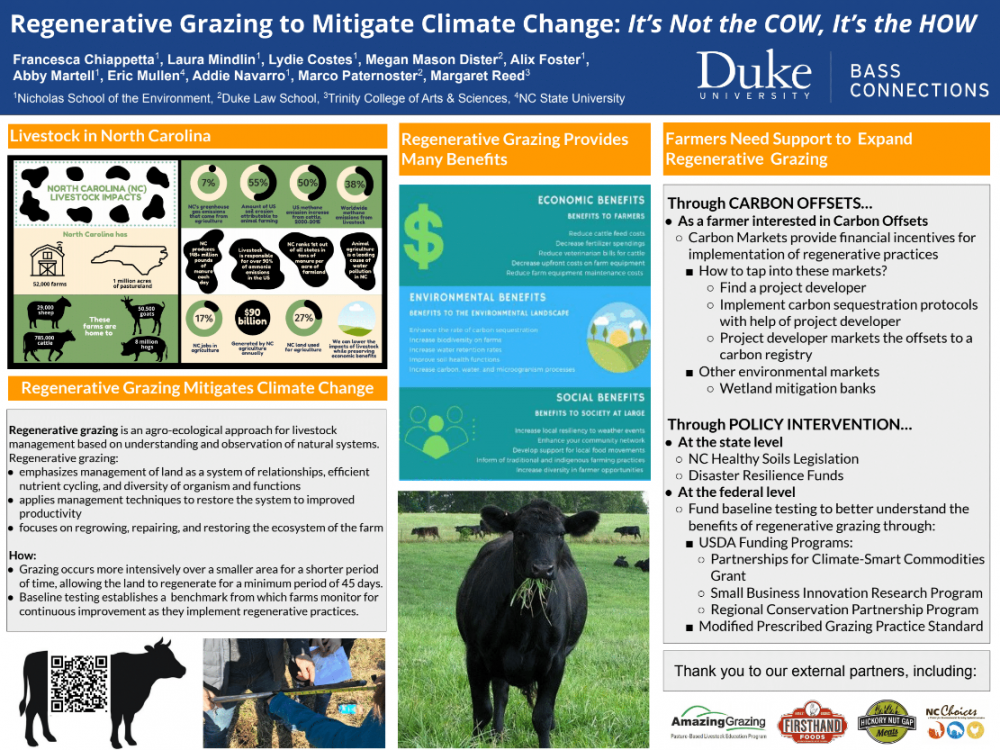It's Not the Cow, It's the How: New Agro-Ecological Approaches to Livestock Management
Project Team
The 2018 Intergovernmental Panel on Climate Change confirmed that previous climate change predictions were drastic underestimates and warming must be capped at 1.5 degrees to avoid extreme climate disruptions. Fortunately, there is potential for agriculture, representing 13.5% of global greenhouse gas emissions, to cut its emissions and store additional carbon dioxide in soil.
Cattle are the largest contributor to agriculture emissions, but recent research shows promising results for pasture-based carbon sequestration as a climate solution in the southeastern United States. Regenerative grazing provides carbon sequestration as well as social benefits, such as rural economic development and resilience-building. This team investigated mechanisms to fund and support the expansion of regenerative grazing practices through policy interventions and carbon offsets.
Regenerative Grazing to Mitigate Climate Change: It's Not the COW, It's the HOW
Poster by Francesca Chiappetta, Laura Mindlin, Lydie Costes, Megan Mason Dister, Alix Foster, Abby Martell, Eric Mullen, Addie Navarro, Marco Paternoster and Margaret Reed

